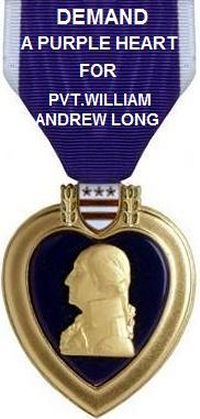Misleading Labels
(All emphases by Always On Watch)
 According to this article in the November 14, 2007 edition of the Washington Post, the thinktank Thomas B. Fordham Institute, which advocates rigorous standards for education, recently graded some Advanced Placement (AP) courses, in which some 14,000 students are enrolled and by which high-school students can receive college credit if they pass the AP exams. Literature courses received a B+, history courses a B-, biology courses an A-, and calculus courses a C-. Compared to the marks which Fordham Institute awarded state standards, those for AP courses were significantly higher than for regular-track courses. However, the report found particular fault with math and history courses because
According to this article in the November 14, 2007 edition of the Washington Post, the thinktank Thomas B. Fordham Institute, which advocates rigorous standards for education, recently graded some Advanced Placement (AP) courses, in which some 14,000 students are enrolled and by which high-school students can receive college credit if they pass the AP exams. Literature courses received a B+, history courses a B-, biology courses an A-, and calculus courses a C-. Compared to the marks which Fordham Institute awarded state standards, those for AP courses were significantly higher than for regular-track courses. However, the report found particular fault with math and history courses becausemath [programs]...allowed more use of calculators than the authors considered appropriate. AP U.S. History was faulted for mentioning few specific historical events in its course plan....The authors advised teachers to ignore the [course] outlines....College Board, which oversees AP courses as mentioned above, has a different take than the Fordham Institute when it comes to history courses. Specifically, College Board has indicated that AP courses should
[pursue] changes to social studies courses that might encourage "more time talking about such themes as 'politics and citizenship' or 'continuity and change,' " which report authors worried would reduce time for learning facts about historical events.That issue of time is, in my opinion, a valid concern. Teachers and students do not have unlimited time to cover course material. Furthermore, just how are students supposed to talk in a reasoned manner about such themes if facts and events are not the basis of such discussions? Maybe the students are supposed to rely on hunches and feelings — those stand-bys of leftist education.
No doubt those factless-based discussions of themes are presented in the list of course objectives and public-relations material for parents as "critical thinking activities." In my view, "critical thinking" is one of today's mean-nothing educational terms, in part designed to make parents feel that their children are learning instead of being propagandized.
Colleges are increasingly finding problems with the content of high-school courses. Students come into higher education without the needed skills and foundational knowledge. As a result, remedial courses of all sorts abound now at the university level. Just how far has our level of education fallen?
One of my former teachers said to me some fifteen years ago, "Now students can graduate from college with a pretty good eighth-grade education." That statement is hyperbole, of course, but still makes the point that our educational system has serious flaws, one of which is abandoning the basics in favor of bells and whistles.
For various reasons, I'm no fan of College Board. That said, the following item from the November 19 issue of US News & World Report provides one reason as to why College Board has a valid concern about the quality of courses designated as "advanced placement":
The College Board's first ever audit of high school Advanced Placement courses found that most of these high school classes did meet college preparation standards. Concerned that some high schools were slapping the AP label on inappropriate classes—in one case, a high school student submitted transcripts to the University of Virginia showing he had taken "AP Study Hall"—the College Board, which administers the AP tests, analyzed 134,000 course syllabuses from 14,383 schools worldwide. More than two thirds of those syllabuses, or 67 percent, were immediately approved by the 839 college and university professors hired to conduct the review, according to the report released last week. The other classes have either been rejected or are still under review, says the College Board's Trevor Packer, vice president of the AP program.What are "the other classes"? Is one-third of existent AP classes being of questionable merit symptomatic of a serious problem with our educational system? With College Board? You decide.
Labels: Academia, Education, Educational standards


















<< Home